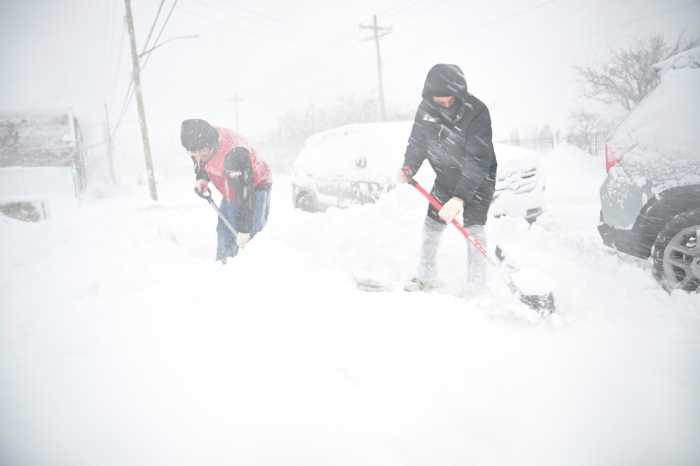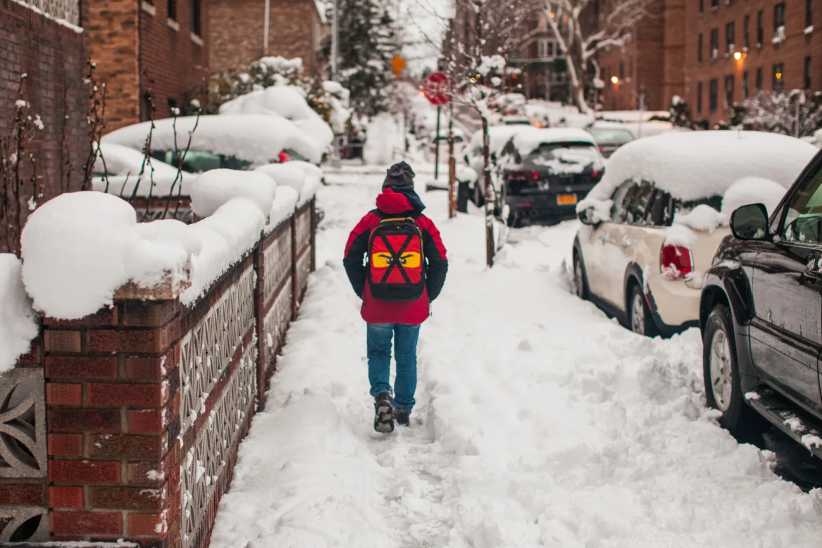Congressmen Tom Suozzi and Gregory Meeks last week joined southeast Queens residents in St. Albans Park to call for the repeal of the SALT cap, which limits the amount of state and local taxes that homeowners can deduct from their returns.
At the Oct. 29 press conference, the middle-class homeowners shared their stories of tax increases due to the $10,000 SALT cap, part of the Tax Cuts and Jobs Act (TCJA) of 2017 issued by former President Donald Trump.
Both Suozzi and Meeks called for the $1.85 trillion social infrastructure package under negotiation in Washington, D.C., to repeal the cap on the state and local tax deduction.
“We are in a battle to save New York. Every day the SALT cap remains in place, New York residents are hurt,” said Suozzi, who is the lead advocate in Congress to repeal the SALT cap. “Higher-income residents are fleeing our state for lower-taxed states that don’t provide the same level of services. As New York loses population, we also lose influence in the Congress even though we are the largest net donor to the federal government. We must and we will repeal this unfair cap that has hurt so many of our residents.”
Prior to TCJA in 2017, New York City homeowners reportedly had an average deduction of $23,637. Suozzi’s office reported that approximately 361,840 Queens residents and nearly 3.42 million New York state residents claimed the SALT deduction when filing taxes.
Although critics of the SALT cap repeal say that it would mostly benefit wealthier Americans, it is reported that repealing the cap would lower the taxes of New Yorkers, including middle-class residents, by $12 billion.
“New Yorkers need action and they need it now. The SALT cap has financially crippled families across the country especially in New York where we are paying the most in federal taxes. This damaging policy hurts middle-class New Yorkers the most and needs to end,” Meeks said.
Homeowner Michael Lampert said that he and his family have lived in southeast Queens for over five decades. When his parents emigrated from Jamaica, they bought a house and eventually passed it on to him.
“When the SALT deduction was removed, we went from a family that either saw a modest return or owed a little bit, to the point where I’m carrying a tax bill right now that I’m paying off monthly, which is something that has never before happened,” he said. “So when Trump initiated this policy, you can see that this is basically a weaponized tax code to punish states [that] didn’t vote for him.”
The New York Times reported that there is a burgeoning agreement to suspend the SALT cap for five years and would apply to “deductions related to property taxes and state and local income taxes” from 2021 and would last through 2025.
The Committee for a Responsible Federal Budget reported that the SALT cap would increase from $10,000 to $72,000 under the Build Back Better Act being considered by the House Rules Committee. The new cap would be retroactive to 2021 and extend through 2031 and cost about $300 billion through 2025, with $240 billion of that going to households making over $200,000 per year.


































